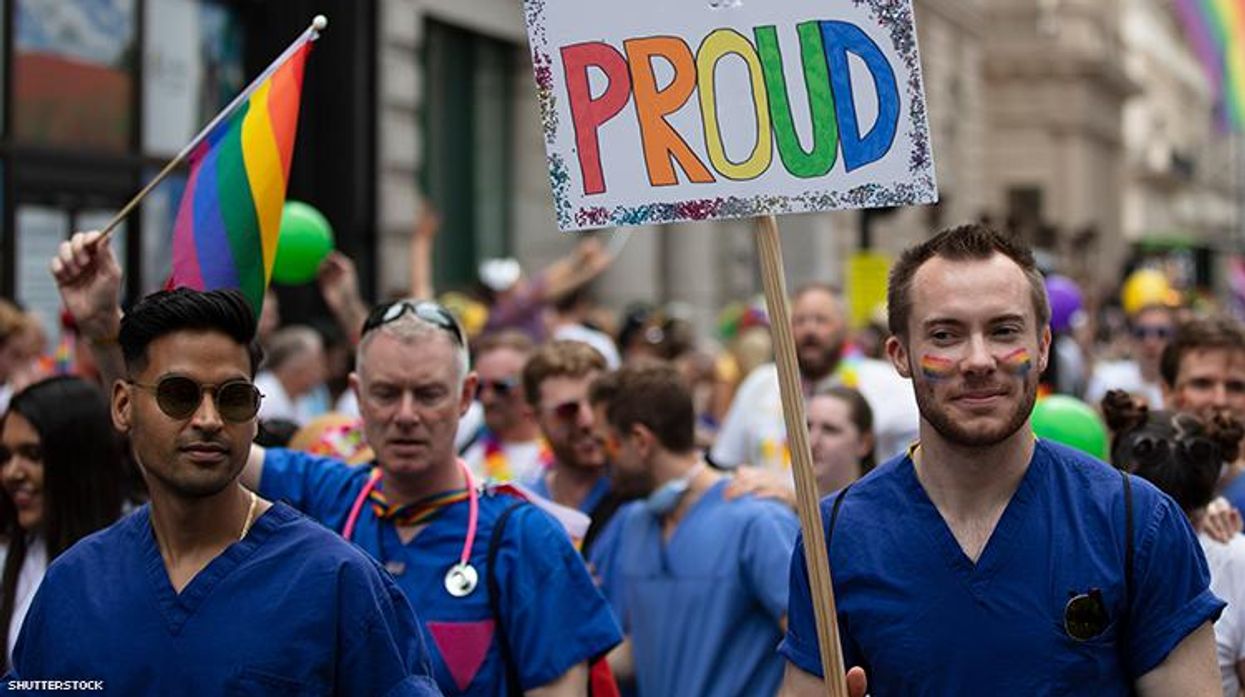Voices
Death of Trump’s 'Denial of Care' Rule Means Life for LGBTQ Patients

Two judges slowed, and maybe stopped, one of the administration's most dangerous efforts.
November 08 2019 6:57 PM EST
By continuing to use our site, you agree to our Privacy Policy and Terms of Use.

Two judges slowed, and maybe stopped, one of the administration's most dangerous efforts.
Can an ambulance driver turn away a passenger who is seeking emergency care for an ectopic pregnancy because the driver objects to the treatment on religious or moral grounds? On November 6, a federal district judge in New York answered with a resounding "no" in an order striking down a new regulation from the Trump administration that was scheduled to go into effect later this month.
The new rule would allow health care professionals to deny certain medical treatments or services to patients based on the provider's own religious or moral beliefs -- regardless of whether the patient could obtain the care from another provider. Thanks to the court's ruling, however, this dramatic expansion of federal conscience protections cannot take effect anywhere in the country.
The New York court ruled in three cases brought by a coalition of state and local governments and health care organizations. Five other federal lawsuits -- in California, Washington, and Maryland -- are also challenging the rule. At a hearing on November 7, the judge in the Washington case also struck down the rule.
These rulings are a huge victory for LGBTQ people, people seeking abortions, and others who are especially likely to be denied care. In fact, one of the legal challenges was brought by LGBTQ health care organizations. As the National Center for Lesbian Rights explained in a "friend of the court" brief joined by 22 other LGBTQ organizations, the challenged rule would be particularly harmful to LGBTQ patients, who already face discrimination in health care settings.
One of the most troubling aspects of the rule is that its ambiguous language may be misinterpreted to suggest that a medical provider could deny care based simply on a patient's LGBTQ identity. In addition, the rule invites health care providers to refuse certain medically necessary care to LGBTQ people, including life-saving treatments for gender transition. In effect, the rule would pin a target on the back of LGBTQ patients, who would be placed in the untenable position of never knowing if they will be denied the care they need.
Fear of discrimination already deters many LGBTQ people from seeking medical care. The U.S. Transgender Survey found that 23 percent of transgender people avoided seeing a doctor when they needed to in the past year because they were afraid of being mistreated. And the Center for American Progress found that LGBTQ people who had experienced discrimination in the past year were nearly seven times more likely to avoid doctors' offices than those people who had not experienced discrimination in the past year. If permitted to take effect, the new rule would cause even more LGBTQ people to forego needed care.
In stopping the rule from taking effect, the New York court found that the rule conflicts with two major federal laws: Title VII of the Civil Rights Act of 1964, which sets clear limits on accommodating workers' religious objections, and the Emergency Medical Treatment and Labor Act, which ensures that patients receive emergency care. The court also found the government's claim that it created the rule in response to a significant increase in health care workers' conscience complaints "factually untrue," and it questioned the "validity and integrity" of the rulemaking process. In short, the government made a "demonstrably false" claim in an attempt to justify a sweeping new rule that would jeopardize patient health and safety and override critical legal protections that have been in place for decades.
The federal government should be ensuring equal access to healthcare and ending discriminatory practices. This rule does exactly the opposite. While the rulings in the lower courts may not be the final word on this issue, they send a strong message that the courts will not stand idly by when this administration attempts to distort the important principle of religious freedom to justify harmful and unlawful conduct.
Julie Wilensky is a senior staff attorney at the National Center for Lesbian Rights.
Charlie Kirk DID say stoning gay people was the 'perfect law' — and these other heinous quotes